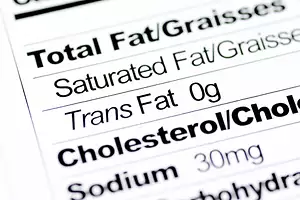Many cancer-related deaths could be prevented each year by early detection. Some cancers can take years to develop. Catching the growth of cancerous cells in the early stages can stop this detrimental disease from developing.
Even though routine cancer screening procedures are widely available and effective, many do not go to have them. However, the best way to prevent most cancers is early detection. Here is what you can do to spot cancer while it is still in the early stages:
1. Undergo the appropriate screening.
Colon: Doctors recommend that men and women begin having routine colonoscopies at the age of 50.
Prostate: Men should begin having baseline PSA (prostate specific antigen) screening at the age of 50. These tests should be repeated at least every two years.
Breast: After the age of 40, women should have yearly mammograms.
Cervix: Between the ages of 21 and 65 women should have a Pap smear every year. Once you have had three negative Pap smears, your doctor might recommend that you have them less frequently.
2. Limit the risk factors you can.
Many of the factors that impact your risk for developing cancer are out of your control. However, there are lifestyle changes you can make right now that will actually prevent the development of certain cancers.
Regular exercise and maintaining a healthy weight can lower your risk of developing breast cancer.
Protect your liver from cancer by only drinking alcohol in moderation.
Quit smoking to decrease your chances of developing bladder and lung cancers.
Stay out of tanning beds and protect yourself from the sun to lower your risk of skin cancer.
Eat healthy foods. Focus on eating a wide variety of fruits, vegetables and whole grains. Limit the amount of red meat and processed meats that you eat.
Eat less saturated fats found in dairy products and meat.
Be careful how you prepare the foods you eat. Eating overcooked meat is linked to certain types of cancer.
3. Be aware of your family history.
Your genetic makeup is a huge factor in the development of many types of cancer. Talk to your doctor about the types of cancer that run in your family and go through the appropriate screening.
4. Know your body.
Watch for changes in your body. According to the American Cancer Society, cancer could cause:
Unexplained weight loss
Fever
Fatigue
Pain
Skin changes
Unusual bleeding
Thickening or lump in the breast or other parts of the body
Changes in bowel habits or bladder function
Changes in a wart or mole or any new skin changes
Indigestion or trouble swallowing
Sores that do not heal
White patches inside the mouth or white spots on the tongue










Comments